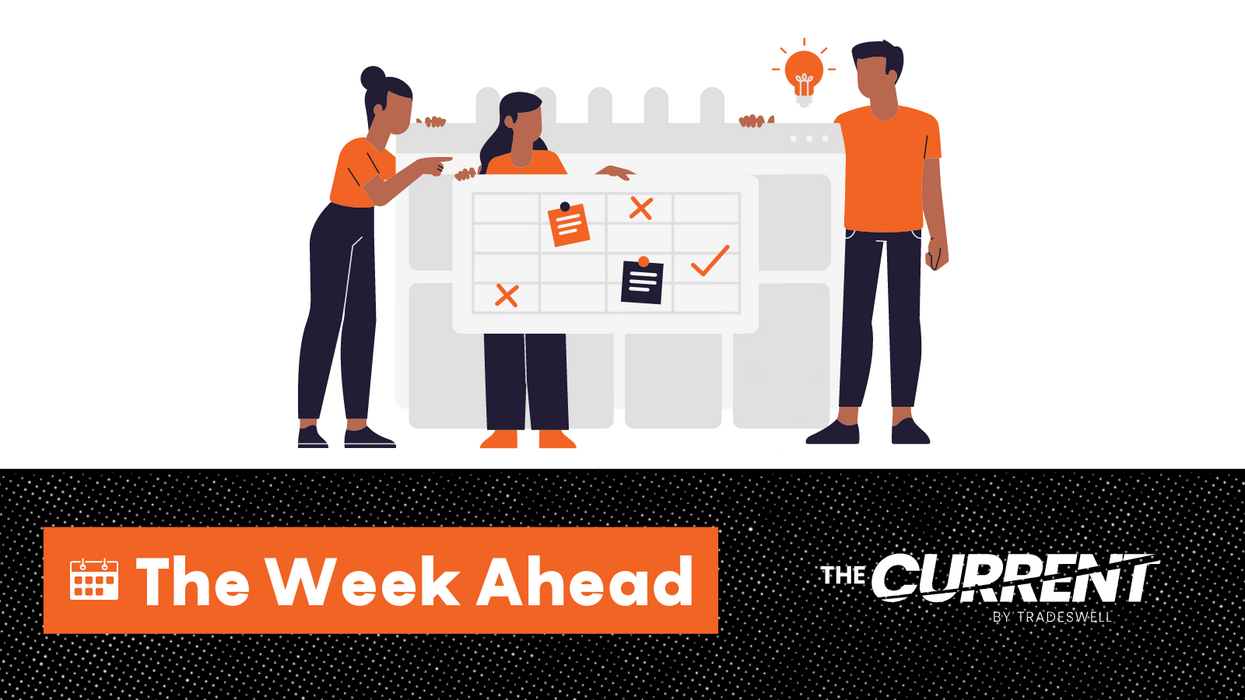Economy
27 November 2022
The Week Ahead: Cyber Monday; inflation data; Kroger, Ulta earnings
Check out what's ahead in commerce for Nov. 28- Dec. 2.

Check out what's ahead in commerce for Nov. 28- Dec. 2.

Welcome to a new week. The holiday season is in full swing, with Cyber Monday arriving to bookend the Cyber Five with an exclamation point for ecommerce. Later in the week, a bevy of earnings from retailers will provide plenty of color around the holiday weekend results. Meanwhile, economic data from the federal government will provide a portrait of consumer demand, and cover both sides of the Federal Reserve’s dual mandate of jobs and inflation as the central bank considers whether to slow the pace of interest rates.
Cyber Monday: The biggest shopping weekend of the year closes out with a bevy of online deals. Adobe Analytics forecasts that Cyber Monday will bring in $11.2 billion via ecommerce, which would be an increase of 5.1% over 2021. It’s the culmination of a promotional period that has been running for (at least) a week. Underscoring the point, Amazon started Cyber Monday savings on Saturday. (Nov. 28)
Consumer Confidence Index: The Conference Board releases the monthly measure of attitudes and expectations on key economic topics including inflation and interest rates. This comes after consumer sentiment, as measured by the University of Michigan, fell 5% for the month. (Nov. 29, 10 a.m.)
Retail Inventories: The US Commerce Department provides a look at the goods sitting in retailers’ stock for the prior month. In September, this measure fell slightly by 0.1% month-over-month for the first time since June 2020, but the rate remains high amid the glut of inventory that followed supply chain issues. (Nov. 29, 8:30 a.m.)
JOLTs: The Job Openings and Labor Turnover Survey from the US Bureau of Labor Statistics offers a measure of available roles, quits and hiring for the prior month. (Nov. 30, 10 a.m.)
Personal Consumption Expenditures: The US Bureau of Economic Analysis releases its report on consumer spending and inflation for October. The price index in this report is closely watched by the Federal Reserve, and all eyes will be on whether it shows cooling in the same way that the Consumer Price Index did earlier this month. (Dec. 1, 8:30 a.m.)
Jobs report: The US Bureau of Labor Statistics releases its monthly report on unemployment and job creation for November. This is the key measure of the labor market, and serves as a dual-sided indicator. Any new jobs added will be seen as good for demand at the outset of the holiday season, while an uptick in unemployment may provide evidence that the Federal Reserve’s inflation-fighting efforts to cool demand through interest rates are having an effect. (Dec. 2, 8:30 a.m.)
On the Move has the latest from Amazon, Lovesac and more.
Ryan Cohen is executive chairman of GameStop. (Photo by Flickr user Bill Jerome, used under a Creative Commons) license.
This week, leadership is changing at GameStop, Sorel and Beautycounter. Meanwhile, key executives are departing at Amazon, Wayfair and Lovesac.
Here’s a look at the latest shuffles:
GameStop announced the termination of Matthew Furlong as CEO on Wednesday. A brief statement did not provide a reason for the firing.
With the move, Chewy founder and activist investor Ryan Cohen was named executive chairman of the video game retailer. Cohen will be responsible for capital allocation and overseeing management.
It came as the company reported a 10% year-over-year decline in net sales for the first quarter. Meanwhile, the company’s net loss improved by 62%.
In an SEC filing, GameStop further added this “We believe the combination of these efforts to stabilize and optimize our core business and achieve sustained profitability while also focusing on capital allocation under Mr. Cohen’s leadership will further unlock long-term value creation for our stockholders.”
Cohen was revealed as GameStop's largest shareholder when he disclosed a 10% stake in the retailer in 2020. GameStop went on to become a leading name in the meme stock rise of 2021.
Mark Nenow is stepping down as president of the Sorel brand in order to focus on his health.
After rising to the role in 2015, Nenow spearheaded a transformation of Columbia Sportswear-owned Sorel from a men’s workwear brand to a fashion-focused brand that led with a women’s offering of boots, sandals and sneakers.
“Mark led the brand to sales of $347 million in net sales in 2022,” said Columbia Sportswear CEO Tim Boyle, in a statement. “His leadership has been invaluable to this company, and we wish him the very best.”
Columbia will conduct a search for Nenow’s replacement. Craig Zanon, the company’s SVP of emerging brands, will lead Sorel in the interim.
Beautycounter appointed board member Mindy Mackenzie as interim CEO, succeeding Marc Rey. According to the brand, Rey and the board “mutually decided to transition to a new phase of leadership for Beautycounter.”
McKenzie, a former executive at Carlyle, McKinsey and Jim Beam, will lead the company as it conducts a search for a permanent CEO. Additionally, former Natura & Co CEO Roberto Marques will join Beautycounter’s board as chair.
As part of the transition, Nicole Malozi is also joining the company as chief financial officer. She brings experience from Tatcha, Nike, and DFS Group Limited.
Melissa Nick, a VP of customer fulfillment for North America at Amazon, will leave the company, effective June 16, CNBC reported. Nick joined the company in 2014, and oversaw a region that included nearly 300 fulfillment centers. After doubling its supply chain footprint during the pandemic, Amazon recently reorganized its fulfillment operations to take a regional approach, as opposed to a national model that often resulted in items shipping across the country.

Jon Blotner (Courtesy photo)
Steve Oblak will retire from the role of chief commercial officer at home goods marketplace Wayfair. With the move, Jon Blotner will be promoted to chief commercial officer.
"Steve has served as a critical part of our leadership team and played a pivotal role in Wayfair's growth, helping us grow from a $250 million business when he joined to $12 billion in net revenue today,” said Wayfair CEO Niraj Shah, in a statement. “He oversaw countless milestones, from helping to launch the Wayfair brand as we brought together hundreds of sites into a single platform, to launching new categories, business lines, and geographies while overseeing our North American and European businesses, to leading our debut into physical retail.”
Blotner previously oversaw exclusive and specialty retail brands, as well as digital media at Wayfair. Before joining the company, he served as president of Gemvara.com prior to its 2016 acquisition by Berkshire Hathaway.
Furniture retailer Lovesac said Donna Dellomo will retire as EVP and CFO, and move to an advisory role, effective June 30. Dellomo was with Lovesac for six years.
Keith Siegner was appointed as the next EVP and CFO. He brings experience as CFO of esports company Vindex, as well as executive roles at Yum! Brands, UBS Securities and Credit Suisse.
Additionally, Jack Krause will retire from the role of chief strategy officer, effective June 30. His responsibilities will be divided between CEO Shawn Nelson and president Mary Fox.
“Since joining Lovesac, Jack has played an instrumental role in transforming the Company into a true omni channel retailer by helping expand our physical touchpoints and digital platform as we continue to disrupt the industry,” said Nelson, in a statement.
The National Retail Federation announced the addition of five new board members. They include: